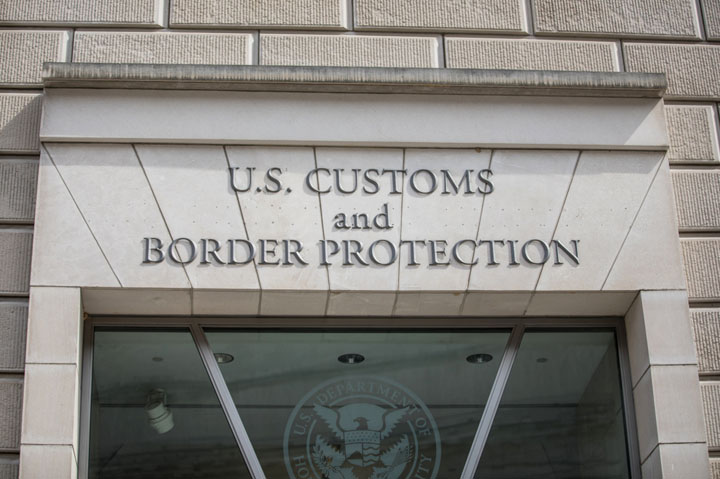News March 17, 2023
Uyghur Act Enforcement: Customs Denies Entry to 424 Shipments Over Forced Labor Concerns
It’s another reminder to importers in promo and beyond that it’s pivotal to rid supply chains of forced labor for moral reasons – and for legal and financial ones.
Importers in the promotional products industry take note: U.S. Customs and Border Protection is cracking down on imports made with – or suspected of being made with – forced labor.
CBP has revealed that it has stopped 3,237 imported shipments, with a total value of $961 million, for forced labor inspections under the Uyghur Forced Labor Prevention Act (UFLPA), which became law in December 2021 and then began being enforced in June last year.

So far, federal agents have denied entry into the U.S. to 424 of those shipments on belief that goods they contained originated from Xinjiang, a region of China for which the UFLPA has established a rebuttal presumption that goods/products are produced with forced labor and thus not legally allowed in the United States.
261
The number of apparel/textiles/footwear shipments that have been denied entry to the U.S. under the UFLPA on suspicion of forced labor. (CBP)
CBP most often undertook inspections of electronics shipments – some 1,627 shipments totaling $841.23 million in value. Of those, 17 shipments were denied entry, 552 were given the all-clear, and another 1,058 are pending.
CBP’s second most frequently targeted category was apparel/textiles/footwear. Here, agents stopped 631 shipments totaling $29.55 million in value for inspection, denying entry to 261 shipments. CBP has released 136 shipments, while 234 shipments are pending.
Meanwhile, 191 shipments of consumer products/mass merchandising goods totaling $15.41 million in value have been scrutinized. CBP has denied entry to 12 shipments and released 165. Currently, 14 shipments are pending.
1,627
Number of electronics shipments CBP has stopped for inspection under UFLPA.(CBP)
Additionally, CBP has focused on shipments of industrial and manufacturing materials, agriculture and prepared products, pharmaceuticals/chemicals, base metals, machinery and automotive/aerospace items.
The UFLPA essentially prohibits all imports from Xinjiang due to concerns that Uyghurs and other ethnic minority groups primarily of the Muslim faith are being pressed into forced labor in the sprawling region of northwestern China. China vehemently denies wrongdoing.
The law allows for exemptions, meaning if an importer can definitively prove no forced labor or other human rights abuses were committed, then products they want to bring to the U.S. from Xinjiang could enter. Still, the burden of proof is high and must be granted by CBP’s commissioner and reported to Congress.
Given how opaque, complex and intertwined global supply chains have become, sourcing experts say it can be a challenge to know whether a U.S.-based importer’s foreign-manufactured products have been made with forced labor in China’s Xinjiang region.
Nonetheless, there are actions promo products companies can take to become an ethical importer with a well-vetted supply chain. These include conducting a detail supply chain inspection, collecting documentation/affidavits that demonstrate that items have no connection to Xinjiang from each identifiable supplier and manufacturer in a supply chain, and shifting sourcing/overseas partners when necessary.
